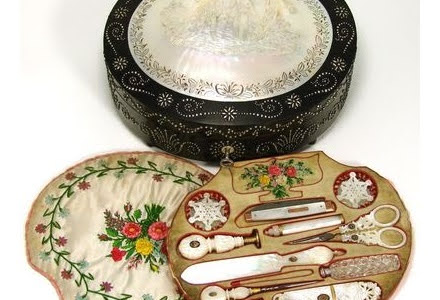"I like your computer," she said. "It looks like it was made by Indians or something."
Chia looked down at her sandbenders. Turned off the red switch. "Coral," she said. "These are turquoise. The ones that look like ivory are the inside of a kind of nut. Renewable."
"The rest is silver?"
"Aluminum," Chia said. "They melt old cans they dig up on the beach cast it in sand molds. These panels are micarta. That's linen with this resin in it."
One of the things I loved most about the novel Idoru by William Gibson was the idea of handmade computers. Going beyond the limited customization offered by tower cases and laptop decals, he presented a vision of one of a kind units. In a world of cheap T-shirts, fast food, and Walmart, the idea of something so unique, so intentional, has instant appeal.
One of my greatest disappointments of the future is that we haven’t embraced a hand-crafted model like the one described in Idoru. There are hints of handmade technology—phone cases here, apps, widgets, and live wallpapers there—most notably in the Steampunk genre where a DIY aesthetic is applied to everything from fashion to machinery to vehicles. The glimpses, though, serve more to highlight the predominance of mass-produced items.
I think about that a lot, about how we have reached a point where we shouldn’t be relying so much on mass-produced clothes and furniture and houses. I wonder what it would look like, to live in a world where there were more crafters, making more beautiful things for people.
It’d require a higher standard of living than we have right now, that’s for sure. Obamacare has been helpful in easing one of the main reasons people don’t strike out on their own. But when you can’t be certain if you’ll make enough to survive, all the health care in the world isn’t going to convince you to leave your day job.
A guaranteed income would probably be necessary. Or at least creating a living wage. If we could ensure that people wouldn’t starve, that they would have a place to sleep, that they could have their basic needs met, what would they accomplish? If someone could be certain that working forty hours at a fast food place paid enough to meet their needs, what could they do with all the extra time they didn’t have to spend at a second or third job? How many cottage industries would crop up, providing beauty to replace the beige and plastic molded bits and bobs of our lives?
I don’t know. I’d love to find out, though.
First posted on Thu, 14 Jan 2016.


Leave a Reply